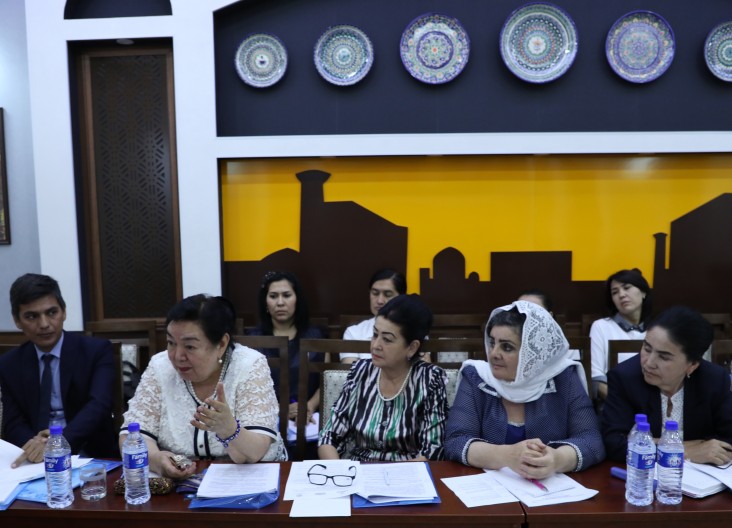Speeches Shim

USAID’s Judicial Reform in Uzbekistan Program supported the development of the first gender law in the country.
In September 2019, Uzbekistan adopted the country’s first ever gender equality law, “Guarantees of Equal Rights and Opportunities for Women and Men”. The long-awaited law represents a firm stance against gender-based discrimination and ensures equal rights for both sexes – an ambitious goal in a society with deeply-rooted gender stereotypes.
Even though the Constitution guarantees equal rights, opportunities for men and women still are far from equal. For example, women make up only 16 percent of the Legislative Chamber of Oliy Majlis (Parliament). Furthermore, women are under-represented in leadership positions, especially in the government, and are limited in their ability to own property or start a business. While there are no existing legal constraints, women also play a secondary role in science, research and technical areas, such as IT and engineering.
Yet, there is strong political will to change the status quo. With the USAID-funded Judicial Reform in Uzbekistan Program’s support for the drafting process and public hearings, the government has declared a firm commitment to the country’s first gender equality law. The law covers virtually all areas of life where discrimination is likely—political, economic, social, educational and familial—and clearly defines what gender-based discrimination is, and the legal actions that can be taken to counter it. As a result of this law, women’s claims of discrimination can no longer be ignored on the basis of mentality or traditions.
Deputy Chairperson of the Oila Center under the Cabinet of Ministers, Ms. Gulnara Ishankhanova states, “The new law is an ‘eye opener’ for everybody, including the state, as it affirms that the state should not tolerate discrimination against women, even if it is founded on deeply engrained stereotypes. This law will prompt the state to evaluate each situation from a gender point of view, from hiring for jobs, improving higher education opportunities for women to resolving family disputes.”

Comment
Make a general inquiry or suggest an improvement.